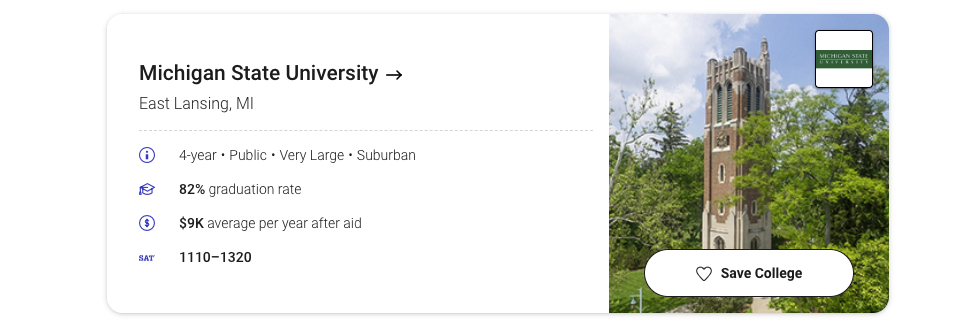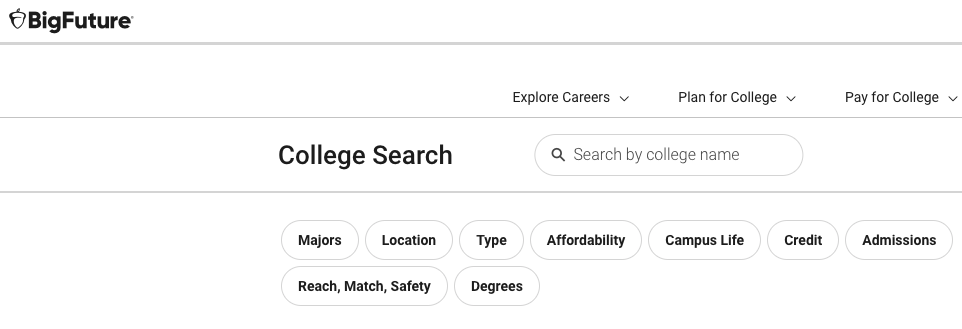Where do I Start to Figure Out My Student's Path #6 - Researching Paths (Independent Databases)
- Anne Johnson
- Mar 20, 2024
- 4 min read
Feeling confused, overwhelmed, or lost when trying to figure out your student's educational path? It's never too late to start, and I'm here to show you exactly where to begin. Welcome back to our blog series, "Where Do I Start to Figure Out My Student's Path," dedicated to helping parents navigate the high school journey. Today, we discuss Step 6- Using Independent Databases to Research Your Student's Path.
This week, we are delving into the valuable resource of independent databases for college and path-finding research. We will look at three different databases that streamline this search process by providing comprehensive information in one convenient location. Let's dive in and discover how you can leverage independent databases to support your student's path to education after high school.
Navigating College Research with Independent Databases
When it comes to researching colleges, having access to reliable and comprehensive information is critical. Independent databases offer a wealth of data on thousands of colleges and universities across the United States. From admission statistics and financial aid information to campus demographics and academic programs, these databases provide everything you need to make informed decisions about your student's future.
The other wonderful thing about starting with independent databases instead of the school or path's website is these databases consolidate all relevant information about each college into one easily accessible and organized system. This makes comparing and contrasting schools simple, allowing you to quickly evaluate factors such as tuition costs, graduation rates, and student-to-faculty ratios. As you can see below on the screenshot, on one of my alma mater's from the CollegeNavigator website, each school's information will be listed in the same place. So, comparing admissions, net price, and financial aid between schools will be easy.

Using CollegeNavigator to Compare Schools
My favorite independent database for researching college is CollegeNavigator. CollegeNavigator is a free website where the National Center for Education Statistics organizes all of the data colleges must submit to the U.S. Government. Within CollegeNavigator, you can easily narrow your options and identify colleges that align with your student's preferences and priorities. Whether they're interested in small liberal arts colleges or large research universities, CollegeNavigator allows you to filter and sort schools based on various criteria, making the research process efficient and effective.
The link to all recommended resources will be at the bottom of this post.
Tips for Maximizing The Databases
As you explore College Navigator and other independent databases, keep the following tips in mind:

Always start with your student's priorities: Identify the key factors that matter most to your student, such as location, size, academic programs, and campus culture. Include any other priorities you identified in Steps 1-5 of this blog series.
Utilize filters and sorting options: Narrow your search results by applying filters for specific criteria, such as acceptance rate or average SAT scores.
Compare multiple schools: Take advantage of College Navigator's comparison tool to evaluate various colleges, highlighting their differences and similarities.
Explore additional resources: While College Navigator is a valuable tool, don't hesitate to explore other independent databases and college search websites for further insights and perspectives.
Two Other Databases to Explore
Big Future
Big Future is CollegeBoard's college search engine. Collegeboard is the non-profit that run the SAT. This website also has a search engine function and a way to research individual colleges - you can see the images below of both.
Appily
Appily structures information similarly but has a different interface and different criteria you can search by to narrow down your options. Nevertheless, college information overviews and search functions are still similar to the other two websites.
The bottom line is that it can feel overwhelming because there are so many college search engines and databases, and this is before you even wade into the individual school's websites. However, now you know that each website offers similar information that is organized slightly differently, and the CollegeNavigator website provides the information directly from the source with no spin on it. The other two websites are helpful if you want to branch out a bit, but there is no need to be overwhelmed when all of the college search websites offer similar information. You can't go wrong!
Bringing the previous 5 steps together
Later in the process, I will be providing you with a free download to organize all of the information that you are researching; however, for now, pick some schools that you think your child might be interested in and research the factors you think are going to be important as identified in Steps 1-5.
You can start by searching by school, or you can search by the factors you have identified as important. For example, I could start by searching Indiana University Bloomington if I want to see information about that school. Or I could start by searching for schools within a 100-mile radius of my house with Biology majors and Division 1 Swimming (IU Bloomington would pop up in this search as well).
Looking Ahead
Independent databases like College Navigator are invaluable resources as you work through this search process. By leveraging these tools effectively, you can gather comprehensive information about colleges and universities, compare schools easily, and ultimately make informed decisions about your student's future. Stay tuned for next week's installment of our blog series, where we'll continue to explore essential topics in finding your student's path through high school and beyond, and continue building resources, communities, and skills together.
I look forward to your conversations with your students, teens, and young adults. Let's make this journey joyful and transformative for them!
Would you like this blog series distilled down into 1 simple to follow checklist? Download my Free Path-Finding Checklist that Prioritizes Mental Health: Click the link here
Schedule a complimentary 30-minute call to kickstart your teen's journey today! Click the link here
Link to webpage for all research resources: https://www.edpathcoach.com/resources
Direct Links:












Comments